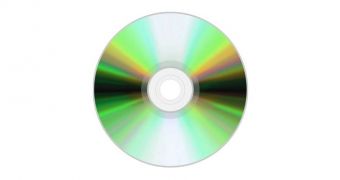Archives have been used since the first invention of the written word, in one measure or other, but now that compact disks are being employed to store data, concerns have arisen over their longevity.
Data retention has always been a concern for removable storage media, and while things are a lot better compared to floppy disks, they are far from perfect.
We've heard about rock-based disks that can last for thousands of years, but the Library of Congress isn't about to use those horrendously expensive things, not for everyday texts.
Fenella France, chief of preservation research and testing at the LoC, is investigating how well CDs can withstand the test of time.
That means that some compact disks have to take the fall, whether by being sealed in a room to see them age, or by being subjected to temperatures of 175 degrees and a relative humidity of 70 percent for 500 hours (to simulate accelerated aging).
If manufacturers didn't keep their formulations private, it would be easier to guess which disks would last longest, especially since most modern formats are geared more for mass production than longevity. On that cheerful note, contrary to popular opinion, it's a worse idea to damage the top layer than the bottom one.

 14 DAY TRIAL //
14 DAY TRIAL //